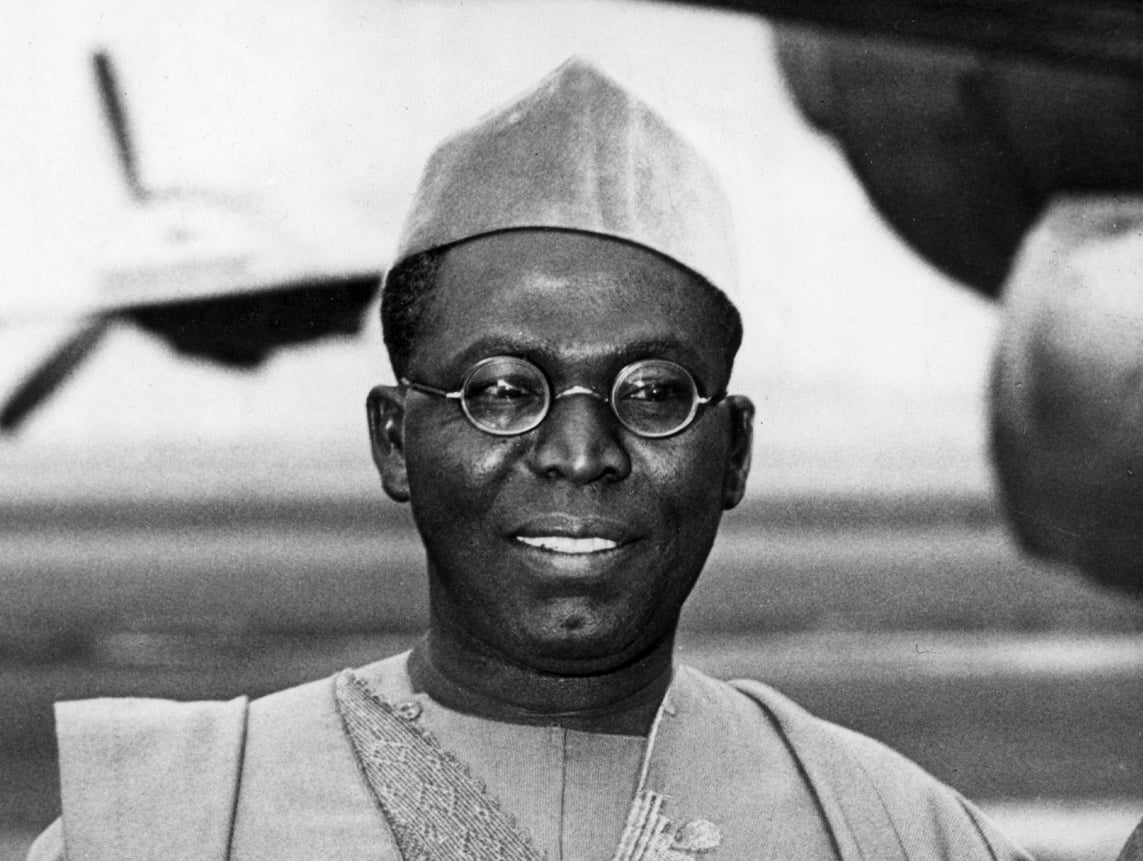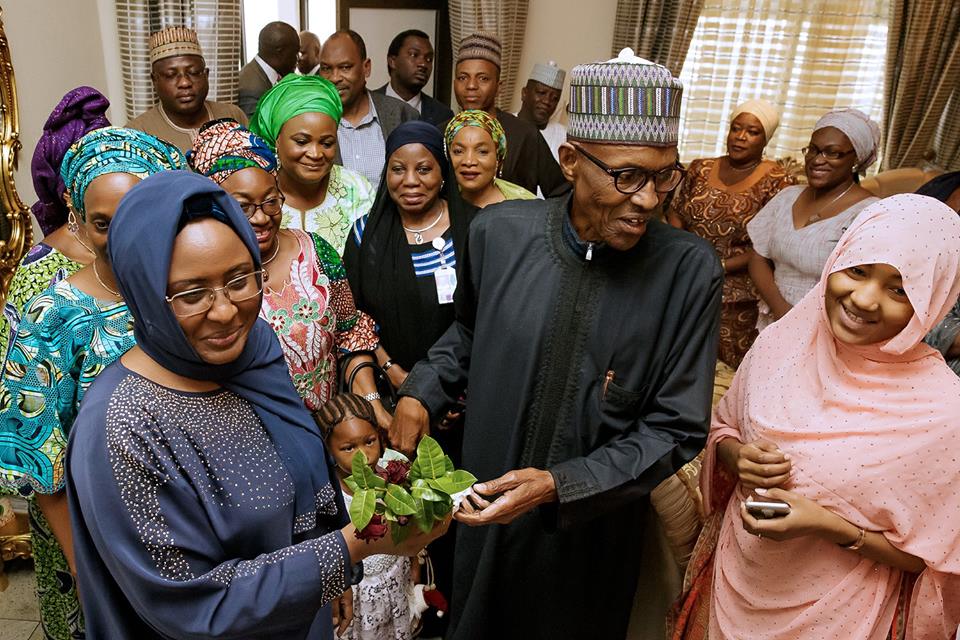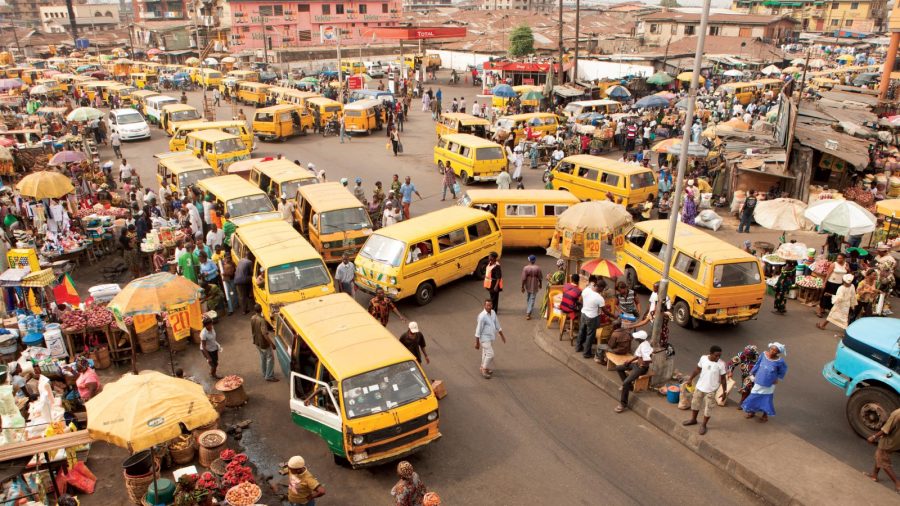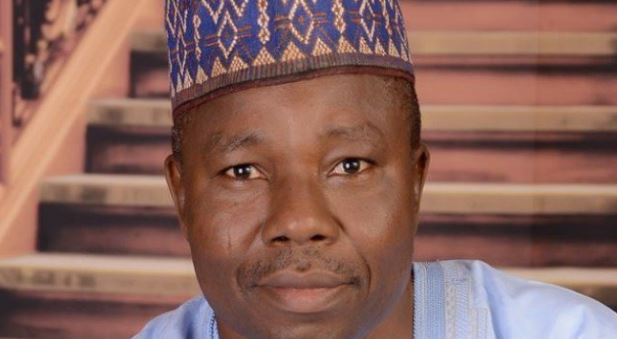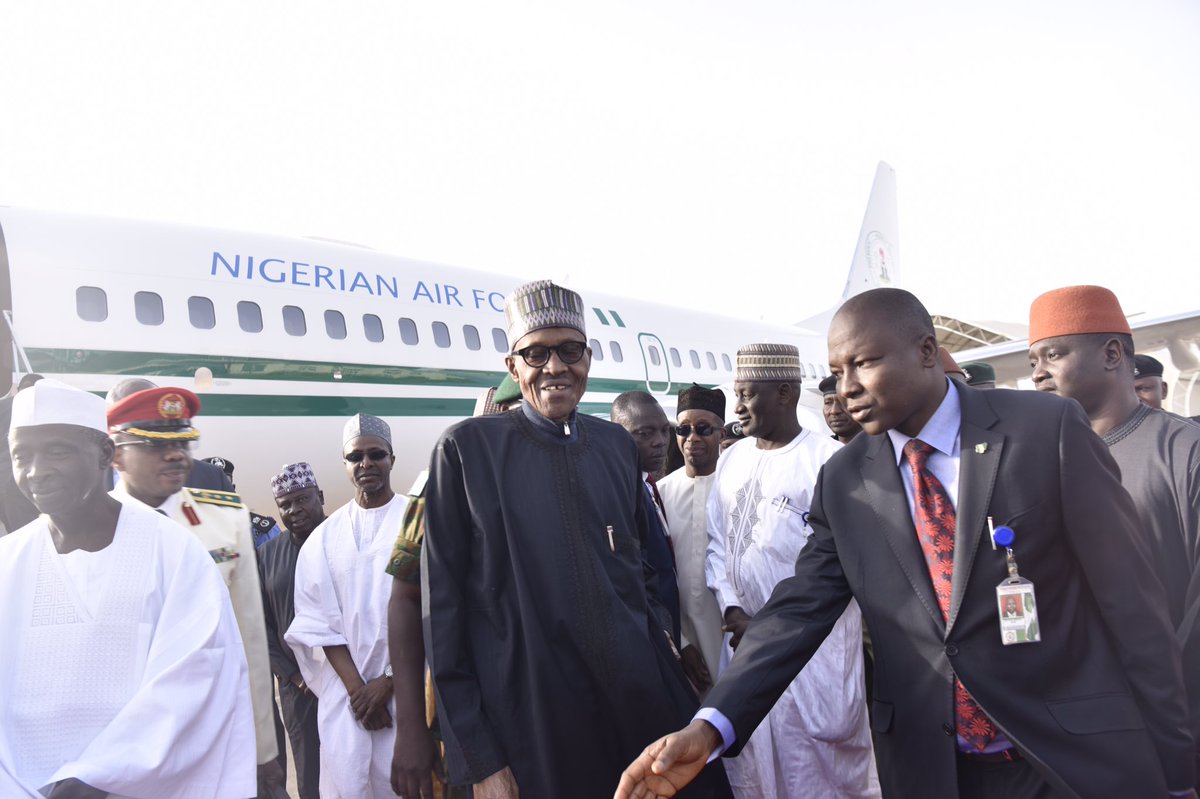As kids, we gathered every evening to "view" Chief Obafemi Awolowo on the moon
BY BANJI AKINTOYE
Each celebration of Chief Obafemi Awolowo’s Birthday is our way of thanking him for the glistering heritage which he bequeathed to us; it also a way of reminding ourselves that we possess a great heritage, and that we can achieve whatever we set our hearts and minds upon to achieve.
Our father, Obafemi Awolowo, was an unrelenting searcher for information and knowledge about his society, country and world, a philosopher, a man of consistent efficiency and steadily high ideals in his private and public life, a man of titanic courage, an accomplished development planner, an endowed nation builder, an astute administrator, a great motivator, a wonderful leader of men and, above all, an inspired and inspiring teacher. It is one of the greatest joys of my life that, in my generation of Nigerian youths, I belonged to the select group of youths who were privileged to be close to Chief Awolowo as to a father, who were fortunate to learn at his feet, and who were called upon, under his leadership, to attempt great exploits towards the improvement of the quality of the lives of our people, and towards the prosperity and greatness of our country.
Chief Awolowo remains very much alive today, because his legacy continues to impact the lives of millions of his countrymen for good. I was in a get-together of old friends some weeks ago in a town in our Southwest. In the course of the evening, we in the gathering got into recounting our memories and reminiscences about our childhood lives. The few of us who were in our eighties told stories about how, when we were children, only a few of us in our towns and villages were going to school while the vast majority of our friends, brothers and cousins were not going, mostly because their parents could not afford to send them. But most of us in the gathering who were in our seventies and below told stories of how life suddenly changed for all children in their towns and villages in 1955, the year in which Chief Awolowo introduced Free Primary Education in the Western Region. Most of the men and women who are senior professors, senior administrators, senior statesmen, senior engineers, senior architects, senior lawyers and so on in our Southwest today, are so because Chief Awolowo opened the door of schools to all children from 1955 on in our Western Region. All these senior citizens are parents of highly educated families that today occupy very important places in the life of our region, our country, and other countries in the wide world – families that will, probably many centuries from now, continue to be important in the lives of our communities and of the world.
Some years ago, while travelling in some countries of Southeast Asia, I met a Yoruba man who was Dean of Technology in his university there. He told me that his place of origin was a small village in a remote part of our Southwest. I jokingly asked him how he had managed to come from his remote village to the position of Dean in a university so far across the world, and he laughed and answered in one single word, “Awolowo”. What he meant is that it was Chief Awolowo that had made it possible for his poor parents to send him to the small school in his small village home, and that it was Chief Awolowo that thereby opened the paths across the world before him.
Advertisement
Chief Awolowo changed the life, the capabilities and the prospects of the whole Yoruba nation in Nigeria, a nation that now numbers about 50 million in population. I returned home a few months ago, after many years of living and working as a professor abroad, mostly in the United States of America. America is a country of thousands of universities; and there is hardly any one of those universities that does not have some Yoruba professors. These days, since my return home from abroad, when I wake up in the morning, I love to stand at a discreet street corner and watch streams of our children going to school. Many of the children are so young that their older sisters or brothers have to hold their hands or even carry them. The one sure thing that every Yoruba mother does for a child of school age today is to send him or her to school. Unknown to those mothers, they are building the Yoruba nation into a mighty nation in the world. In all the future, whenever the story of the greatness is written or told, it will always be remembered that it all started when Obafemi Awolowo opened the door to schools to all the children of his people. Free Education in our Western Region under Chief Awolowo was the very first in all of Africa.
The gift of Free Education was the greatest single gift given by Chief Awolowo to us his people, but it was not the only gift. Under his leadership, the Western Region stood out as the number one Region, the pace setter in development, in Nigeria. The wide-ranging development achievements included many miles of solidly surfaced roads all over our Region, pipe-borne clean water to many of our towns, the first television station on the African continent, the first public-owned sports stadium, the first industrial estate, imaginative support systems for our cocoa farmers (as a result of which our cocoa farmers became the most productive African farmers on the African continent), farm centres training our youths in modern farming, technical training centres teaching modern job skills to our youths, a broad-based investment corporation with investments in industries, commerce, banking, and real estate (the largest agglomeration of African-owned investment capital in Africa). Very importantly too, our Region was the leader in Nigeria in the development of a democratic society, and a government responsive to its people. On the whole, we in the Western Region were led to dream dreams of greatness in the world, we began to see ourselves as soon able to catch up with industrial world leaders like Japan. And we gave our Region the name “First in Africa”.
I need to add that Chief Awolowo did not intend to limit all these to the Western Region. No. When parents from other Regions brought their children across Regional borders to our free schools, Chief Awolowo’s government did not try to stop them. Moreover, he made dedicated efforts to give these goods to the whole of Nigeria. First and foremost in this regard, he was the leader who promoted most clearly and most consistently the idea that a country like Nigeria, comprising many different nationalities, in order to be able to live in harmony and make progress, needs to establish a rational federal system based on respect for the various nationalities. Other Nigerian leaders resisted this, and some castigated him for it, but he never gave up. His words have proved true in the course of the nearly sixty years of Nigeria’s independence. By concocting Nigeria into a country with an all-controlling central government, those who reject Chief Awolowo’s federalist ideas have led Nigeria into evil times – times so evil that Nigeria may ultimately, or may even soon, break up.
Advertisement
Moreover, from 1959, Chief Awolowo embarked on efforts to take his development ideas to the Nigerian federal government and thereby to the whole of Nigeria. He fought titanic election campaigns, and reached the hearts of ordinary Nigerians far and wide. But, as we all know, most elections are won in Nigeria not through the votes of the common people but through the manipulations of powerful and influential citizens, especially powerful and influential citizens holding the machinery of the federal government. At federal election after federal election, Chief Awolowo won the majority of votes and lost the elections.
Unfortunately, in the midst of the rubble into which Nigeria has been reduced, the quality of the education which Chief Awolowo established for us is suffering today. Our children are not learning as much or as well as they should be learning in their schools. Most of the old school environments are run down and depressing and do not inspire the children to learn. Support for schools are generally poor across Nigeria, teachers are irregularly paid their salaries and are demoralized, and many teachers are forced to seek survival in all sorts of side ventures. Therefore, our youths are graduating from our schools, colleges and universities with very low levels of educational competence. The reasons for this sad state of affairs is well known. The persons who have been controlling most of the affairs of Nigeria through the Federal Government since independence are apathetic or even downright hostile to modern education. And, unhappily, the Federal Government which these people control has been gradually turned into the controller of all of Nigeria, with power and influence to determine what states may or may not do. The United Nations agency, UNESCO, estimates that a country that would have an efficient, effective and result-yielding educational system needs to be spending at least 26% of its GDP (or annual budget) on education. Nigeria spends only about 8% on education. Moreover, federal policies, and federal dictation of the nature, contents, and direction of education at all levels throughout Nigeria, have had disastrous effects on education in all parts of Nigeria.
But I must hurry to add that, happily, we are beginning to see welcome changes in our educational system. Some of the school premises being built today for primary schools in some of our states deserve our commendation and our gratitude. While thanking our elected public officials for these, however, we must also urge them to venture into deeper changes in the education of our children. What we Yoruba people want for ourselves is to belong in the ranks of the most educationally, scientifically and technologically advanced peoples of the world. In addition, we want our children to learn, and become proficient in, our language and our history. Chief Awolowo put our feet on the path to all these; we must now resume the journey with all the vigour at our command.
But today, we are living in a Nigeria that has declined to its lowest levels of societal disorder, immorality, and hopelessness. All the negative inputs that have been fed into our country’s life since independence, all the crookedness, all the hatred and vileness and viciousness, all the involvement of the darkness of the occult and of Satanism into the affairs of Nigeria, all the murderous intent and the mass murdering of the weak and vulnerable, all the religious and inter-ethnic violence, all the sub-human greed and corruption in the ranks of the political and bureaucratic elite, all the impunity in the management of Nigerian affairs – all have now converged and concatenated to make Nigeria a land of utter hopelessness for the vast majority of Nigerians, a land of poverty, hunger, disease and destitution, a land of desperation, fear and terror, a land in which rivers of human blood flow day by day, a land in which human life has become pitifully discounted.
Advertisement
A recent report by a United Nations agency described Nigeria as “one of the poorest and most unequal countries in the world”. Another UN report warned that if certain situations in Nigeria were not urgently changed, as many as 140 thousand children could die in a certain part of Nigeria in the next few months. Various reports are informing Nigeria and the world that the charitable money and other items sent by international organizations and individuals from across the world for the care of Nigerians internally displaced by Boko Haram violence are being stolen and shared by Nigerian officials, and that the camps where the internally displaced persons are being kept has become a horrible place of mass starvation and mass deaths. A report in the news media about two weeks ago alerted Nigeria to the fact that instances of mental sickness have risen to frightening heights, and are rising more and more sharply, in our country, and indicated that the cause of this is the condition of our country – the hopeless poverty that reigns over the lives of masses of Nigerians, and the insensitive and utterly immoral governance of our country.
Instances of the vilest and most grotesque crimes, and of the most shockingly inhuman treatments of man by man, are reported daily from various parts of our country. The whole world has been watching videos of Nigerians calmly cutting the throats of hundreds of fellow Nigerians, and of Nigerians gathering groups of other living Nigerians together, dousing them with gasoline, and setting them on fire. Nigeria is becoming a strangely barbarous and repulsive spectacle in the world.
Not surprisingly, the outside world is already showing signs of rejecting Nigeria and Nigerians. About two weeks ago, towards the end of last January, some countries of the world issued warnings and advisories to their citizens, some urging their citizens to desist from going to Nigeria, some advising their citizens who are already in Nigeria to watch out for danger, and some advising their citizens to stay clear of certain parts of Nigeria. In the Union of South Africa, a member country of the African Union, the people are showing very definitely that they no longer want Nigerians in their country. In town after town in that country, crowds of citizens are rising up, attacking Nigerians, chasing Nigerians from their communities, killing some Nigerians in the process, and destroying the businesses and properties of Nigerians. This has been going on for some time, but it has reached a peak in recent months. And similar developments have occurred in some other African countries such as Kenya. Thousands of Nigerians regularly try to reach Europe through the Sahara Desert country of Libya in North Africa, another member of the African Union. According to official reports in recent months, Libyan citizens now commonly attack the arriving Nigerians, steal their money and other belongings, and then kill them.
As we all know, it is the youths of Nigeria that suffer the most from all these rot and ruin of Nigeria. By our youths I mean those Nigerians who belong to the age bracket of 18 to 40. As I said recently in a lecture which I delivered to Igbo Youths in Enugu, the people aged 18 to 40 are always the most dynamic sector of the population of every nation in the world. People below 18 are still children, mostly still schooling or learning in some other way. People in the age bracket 18 to 40 are usually graduates of schools, colleges and universities. In Nigeria, they constitute a majority of our country’s total population – they are believed to be about 55% of our population. Even more importantly, they are the most educated and most skilled sector of our adult population. They produce and raise most of the children that are being born into our population. They dream up most ideas in business; and they are the starters of most business ventures. They lead in all fields of adventure, sports, and arts. In short, they bear the biggest share of the burden of pushing our country forward in economic, business, professional, intellectual, cultural, social and artistic pursuits.
Advertisement
But since independence, planning for the empowerment of our youths has never been a serious and sustained feature of Nigeria’s national development. Even the programmes for youth empowerment started in the Western Region under Chief Awolowo’s Regional government in the 1950s have not survived in the era of federal control and federal fiats. For decades now, the rate of unemployment among our youths has been one of the highest in the world. It has often been estimated as ranging between 54% and 70% among our educated youths, and even higher among the uneducated ones. For even the best university graduates, working the streets for years without a job is the common experience all over Nigeria. Most of our educated youths are unemployable partly because their basic education is grossly defective, partly because they lack modern job skills, and partly because the overwhelming majority lack acceptable job ethics. At the same time, poor infrastructures, poor public administrative services, and insensitive financial services, drastically inhibit the spirit of entrepreneurship among our youths. In most countries in the world, a youth can sit at his mother’s kitchen table or in his father’s garage and put together a business idea that can develop into a big winner in the market place; he does not have to fear for lack of electricity, lack of water, lack of good roads, lack of a supportive public administration, or lack of sensitive and helpful banking services. In Nigeria, even the most creative youth is deterred by such fears from going forward with his ideas; for those who choose to go forward, failure and drop-out are the very common outcomes.
However, even in these terrible times, I bring the message that any youth who chooses to learn from Chief Awolowo’s legacy stands a very good chance of acquiring for himself or herself a purpose-driven life, a life of success, and a life that impacts society, country and world in very positive ways. That is the central purpose of this lecture – to invite and motivate our youths to benefit from the Awolowo legacy and use it to enrich, strengthen and beautify their lives – and if possible, to use it to earn for themselves an image as bright and as enviable as Chief Awolowo’s in the world and for a long time in the future.
Advertisement
First then, I urge you to learn this first thing about Chief Awolowo. He was only a youth like many of you in my audience today when he started to give his life to great exploits. The decisions he took then any of you can take today. At a tender age, he tried his hand at a business of his own, and he also gave some of his time to the emerging nationalist politics of Nigeria. His first great achievement was his founding of the pan-Yoruba organization, EgbeOmo Oduduwa, in 1945. He was only a student in London when he did this, and he was only 37 years old. At only 37, he thus stepped boldly into greatness. Then, two years later, he published his first book proposing the best direction for the constitutional development of Nigeria.
Any youth who chooses to do something like these along lines of his or her own interest has a fair chance of achieving success. World history is copiously dotted with stories of youths who stepped out early and achieved greatness early. Develop interest in such stories – and then boldly choose your own line of action, instead of just roaming the streets for job opportunities that do not exist, or following and yelling after politicians, or attaching yourself to a group of ‘area boys’, or even blindly rushing away to other countries. To your surprise, you may acquire some highly valuable skill, or become the owner of an enterprise of your own, your own kind of enterprise. Though things are tough in Nigeria today, roads to success still exist for those who would decide and launch out with serious dedication – as our father, Awolowo, did.
Advertisement
And then, one of the most impressive features Chief Awolowo’slife was his love of learning, his dedication to finding information and knowledge. His central interest in this was to find out how a country is developed, how this country called Nigeria can be best developed, how to improve the quality of the lives of his countrymen, how to make himself a better and more informed servant of his people. Of course, he gave some time to other kinds of study – for instance, he engaged in some scientific researches, and he set up a small laboratory for that purpose. But the subject of development and progress was his main interest, and he always went at it with almost superhuman energy, zeal and concentration. I and others of my age were only school boys during most years of his revolutionary premiership of the Western Region in the 1950s, but when he came back from his unfair political incarceration, followed by some years of service in the federal war cabinet, and after he returned to full politics in the 1970s, we were already fairly mature intellectuals, and we were among the closest persons in his circle for the rest of his life. He relentlessly pushed himself and us in the search for knowledge – and that meant that he was constantly reading, constantly demanding clearer explanations and new writings and books, constantly doing very incisive writings of his own, constantly drawing us into discussion, frequently asking us to travel to other lands where there might be development information that could help to make our plans for Nigeria better, frequently urging us to take advantage of our academic travels to acquire information about our great central charge – the development and beauty of our Nigeria. It is true, as he said in one of his most famous statements, that while other men slept, he kept working into the deep hours of the night, delving deeper and deeper into knowledge about how to make Nigeria a great country. He was truly the deep calling to the deep.
I believe that Chief Awolowo knew Nigeria more comprehensively and more deeply than any other Nigerian of his time. He was not merely another Nigerian politician. He understood more of Nigeria’s problems, and Nigeria’s economic and political life and prospects, and had clearer and more constructive ideas about the development and future of Nigeria. He fully deserves the deep respect, and the gravity, that he is receiving from us his children and from generations of other Nigerians. Again, I say to my youthful audience of today: any of you can start from this moment to include in your lives a search for knowledge in some field of interest of yours. Any of you who does that stands a fair chance of acquiring at least some of the kind of respect and immortality that Chief Awolowo now enjoys.
Advertisement
I now direct my youthful audience to one special issue over which Chief Awolowo never stopped writing and explaining till his last days. I refer to the issue of a rational and harmonious federation for this country – and the fact that a terribly warped and over-centralized structure has been gradually foisted over our federation since 1966. This over-centralization is the root of all the evils that are now wrecking Nigeria, and the root of all the sufferings of all Nigerians, especially our youths. Our youths must not leave the fight against this destructive federal structure to scattered politicians and intellectuals. You must all rise up and fight it relentlessly, until the advocates and supporters of it yield to the demands for the rational restructuring of our federation.
As part of this war, it is crucial that the nations of Nigeria must be defended by all Nigerian youths. Some people who want a more or less unitary state in this multi-ethnic country have been perversely claiming that Nigeria’s nations are mere myths, that there is no Igbo nation or Yoruba nation or Igala nation or Ijaw nation or Urhobo nation, etc. Some treatises written in 2000-2001 under the auspices of a federal agency (Centre for Democratic Development Research and Training) stated these things explicitly and strongly. They are wrong; and they are deliberately propagating a dangerous falsehood. The youths of Nigeria must confront them powerfully and force them to give up their falsehood.
That demands also that our youths must all begin to propagate respect for the many nations of our country, large or small. Our youths must give up old tendencies whereby persons of one nation denigrate other nations. It is true that, in the complex and confusing politics of Nigeria, some of our nations have hurt one another in some ways in the past. But we must resist the temptation to keep wallowing in the mud-pits of the past; we must give concentration to the fight for a great future for our peoples. Every one of our nations must feel respected and wanted in our country. Every nation in our country, no matter how small, must feel confident in the assurance of protection by the collective will of Nigeria. That is what Chief Awolowo lived much of his life seeking the structural environment for. The kind of genocide now going on in parts of South Kaduna and other parts of the Middle Belt should be met with stout resistance by youths who call Chief Awolowo their father.
To achieve such noble purposes, our youths must develop very strong confidence in themselves, as Chief Awolowo developed great confidence in himself. You must stop the habit of thinking that you are weak, that you are weaker than, and subordinate to, the present class of politicians. Much of Chief Awolowo’s success was due to his confidence that the British white rulers of Nigeria were not superior to Nigerians, and that Nigerians can indeed achieve great things that the British rulers cannot. You are much stronger than you think. Sure, you do not have the kind of money that the corrupt politicians of these days have; but if you use your head, mobilize your huge numbers and your education sensibly, and if you operate purposefully and with discipline as Chief Awolowo would do in circumstances such as these, you can change the destiny of your peoples for the better – even in a country like Nigeria.
Well, at any time, I can speak about Chief Awolowo for hours on end. He means that much to us, and much more. But I must remember my promise to make this a brief speech. Therefore, I will now round this speech up by bringing the youths of my audience to this final subject which Chief Awolowo always stressed very much in our circle.
Chief Awolowo always gave emphasis to the need for leaders and rulers to respect their people. In conversations with the young ones like me, he would often say, “You must always take care to respect our people. If any of you find yourself in a governing position over any part of our people, your first line of survival and success is to respect them. They may be illiterate and poor, but they are members of ancient civilizations and they are more understanding than you think. If you are arrogant and overbearing, they will find ways to stop you – and those ways may hurt your further chances. You must take care to explain things to them, and you must not falsely promise them what you know you cannot do. It is disrespectful to do that. Whatever you do as ruler, do it with our people, don’t merely do it for them. We are not foreigners ruling our people, we are their kith and kin. Make sure to enhance their feeling of self-respect”.
Because Chief Awolowo had such respect for our people, they trusted him. In many towns and villages in Yorubaland, there were old folks whom the local people called Awolowo’s father or Awolowo’s mother. In the 1970s when some of us “Awolowo’s children” were scattered all over Nigeria putting the Unity Party of Nigeria together, we were often surprised to find friends of his in even remote places. In a village called Ankpa in the then Benue State, one such old friend of Chief Awolowo took care of me like a son; and in Uyo in the then Cross River State, another old friend of his received me the same way. Many of my friends had similar experiences in the field.
And, now, I will close this with a story about this wonderful respect of our father for our people. In 1983, in preparation for the 1983 presidential election, Chief Awolowo was doing a campaign tour of Kano State, and I was leading a small team on a special part of our campaign in the then Plateau State. Chief Awolowo sent for me to come and see him for some information he needed to pass to me. I started off that afternoon with my team and, after a night in Kaduna, we reached Kano next morning. Papa had gone out on his campaign in parts of Kano State before we arrived, and he was scheduled to return to Kano City at about 4pm to address the people of the city. Huge crowds were already gathering by noon. But 4pm came and Papa did not arrive; then 5pm, 7pm, 9pm, and he still had not come. Finally, between 9pm and 10pm, he and his large entourage arrived. What had happened is that at many villages along his way, where he had not been billed to stop, the villagers had come to the road and asked him to stop and speak to them. And each time he so stopped, he took his time to speak fully to the villagers and to answer their questions. He respected them too much to do any less. But the result of such strenuous exertion is that he looked fearfully tired when he arrived in Kano City. I went to his room in the house provided for us by the governor of Kano State; but he looked so terribly weak that I quietly gave up the attempt to discuss with him. Some medical doctors were always in our group, and these were hurrying in and out to attend to him. That night, many of us feared that we were going to lose our leader and father. It was a hard and sleepless night for many of us. Mercifully, however, he revived considerably before morning – and was strong enough to talk with me and my team, and to address the large cheering crowd of Kano City people.
That is our father. His life is a whole book of instructions and lessons for us his children.
Being the text of a lecture delivered by Akintoye, a historian at the posthumous birthday celebration of the Obafemi Awolowo
Views expressed by contributors are strictly personal and not of TheCable.
